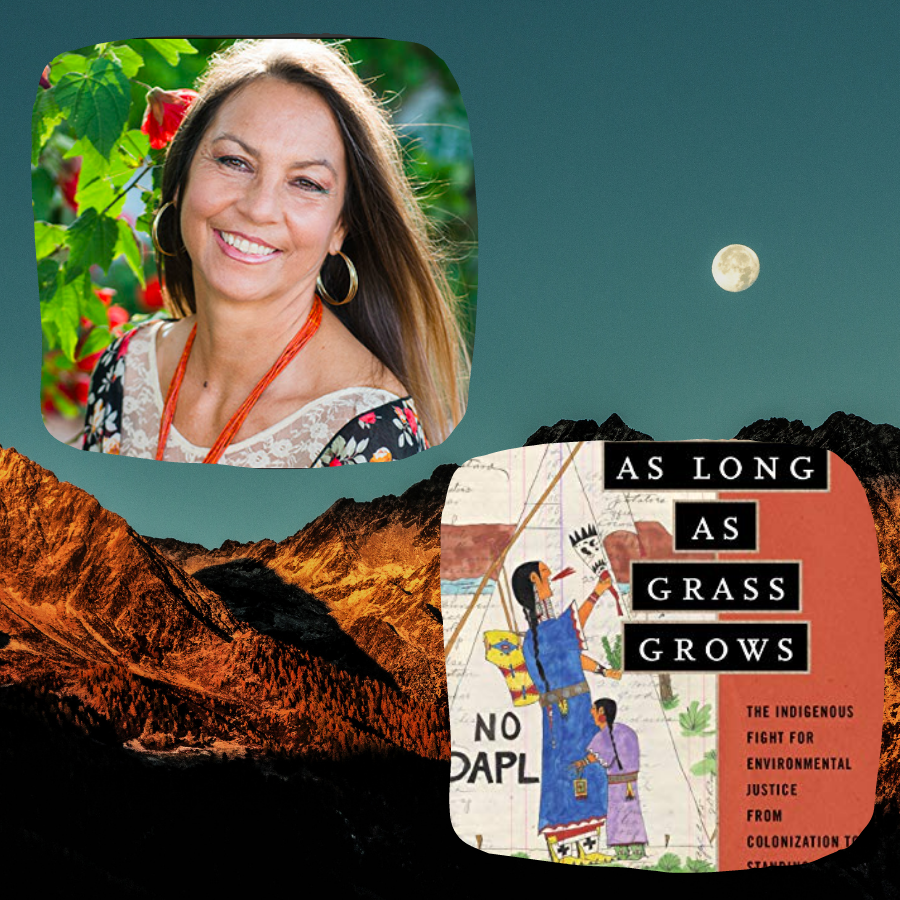Feminist Book Club (FBC) continues to host robust conversations between members and prolific authors, creating gathering with nurturing action. Dina Gilio-Whitaker, author of As Long as Grass Grows: The Indigenous Fight for Environmental Justice, from Colonization to Standing Rock joined FBC for a wide ranging conversation about Indigenous people, feminism, and environmental justice. As Long as Grass Grows was the FBC April choice for the theme of environmental justice.
As members entered the chat, traditional lands were acknowledged, giving sacred recognition. Gilio-Whitaker said that she was on the traditional and unseated lands of the Harshman nation, which is currently called Orange County. In speaking about her definition of feminism, Gilio-Whitaker highlighted Sally Roche Wagner, a feminist scholar who in the 90s lived in Syracuse on the traditional homelands of the Iroquois holding the Shoshone people. Roche Wagner highlighted Indigenous women’s influence on the modern wave of feminism.
Feminism was not widely accepted in American Indian culture because there was an understanding that women were already in parity with men. An example was Indigenous women on Turtle Island who had political shared power. Women can be leaders and subservient to men.
Member Tara asked about Secretary of Interior Deb Haaland. Gilio-Whitaker said her appointment “is promising progress but the structure is still there.” Still, not one person can decolonize the government. Tara also asked how to enjoy national parks and advocate for more Native involvement. Models already exist in the National Park Service that work with tribal lands and restoring lands. Be aware of the history behind the National Park when you visit.
Part of the chat was also about feminism moving against patriarchal Christian colonialism. It is crucial to move from decolonization. The term BIPOC can be as dangerous to use as it is not to. Not all of our struggles are interconnected. What do our struggles mean in our individual communities? To continue a synergy with Indigenous communities and vulnerable communities to support environmental justice, allyship is key. What are you willing to give up in your power and privilege?
Member Shelby and Emily had a question asking Gilio-Whitaker what would she expand on for the book. It would be Indigenous environmental knowledge. Climate Science Alliance is a great resource with “a mission to safeguard natural and human communities in the face of a changing climate.”
Food is medicine, water is life.
Reading suggestions to decolonize your bookshelf, as asked by FBC Members Natalia and Shoshanna:
Braiding Sweetgrass by Robin Wall Kimmerer, which was FBC’s November 2020 choice
As We Have Always Done: Indigenous Freedom Through Radical Resistance by Leanne Betasamosake Simpson
FBC Member Patrick shared the article Decolonization is not a Metaphor by Eve Tuck and K. Wayne Yang
FBC Member Emily shared a list of books by Native American writers


